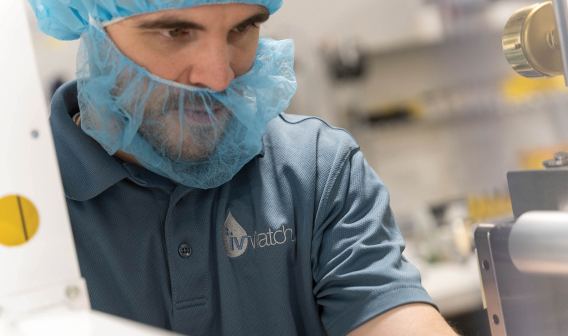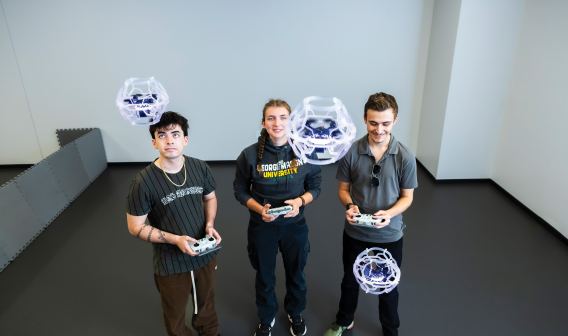Remaking Economic Development
Amy Liu is vice president and director of the Metropolitan Policy Program at Brookings and the Adeline M. and Alfred I. Johnson Chair in Urban and Metropolitan Policy. Most recently, Liu authored Remaking Economic Development: The Markets and Civics of Continuous Growth and Prosperity, in which she argues that city and metropolitan leaders must adopt a broader vision of economic development that can deliver economic growth, prosperity, and inclusion for all residents. VEDP’s president and CEO, Stephen Moret, recently spoke with Liu about the future of economic development.
Stephen Moret: You’ve worked and spoken a lot on the notion of shifting from an attraction-heavy economic development model to more of a balanced multi-mode attack. Can you share what that really means to you and how you see it playing out in the country right now?
Amy Liu: We have to have a broader toolbox. The real purpose of all of our collective efforts should be to put our communities, our regions on a trajectory of higher growth over time that comes from the increasing productivity of firms, workers, and industries, that ultimately increases the employment and incomes of everyone in our community, no matter where they live.
It is that dynamic system of innovation, human capital contribution, inventive industries, and having more people and more firms participate in the economy that generates ongoing growth. Growth that is successful ought to be organic. Our strategies ought to create the conditions for long-term wealth creation, not simply pursue short-term transactions.
Economic development should be about creating the conditions in which people, places, and industries continue to thrive and innovate. Getting the purpose right is really important.
If there’s one lesson out of Amazon HQ2, it is that the knowledge sectors of the economy prize the attributes listed in Amazon’s RFP. They are the ability of a region to produce a technical workforce, provide infrastructure choice, including infrastructure that connects you to global markets and global talent, and offer a high quality, sustainable place. The last asset was diversity ..... economic development needs to have its eyes squarely focused on these attributes.
Moret: While the kind of prescription that you've laid out clearly would be a compelling way to build diverse, growth-oriented, dynamic economies, it is something that would build over time. One of the challenges economic development practitioners face is that so many of the funders of economic development programs (e.g., state legislatures, city councils, and private sector investors) that are putting money into regional and local economic development groups want to focus on "wins" — largely jobs and capital investment from project announcements.
What do you think we could do to help to better position our economic development leaders to have the context that would support your vision?
Liu: There is a light bulb going off in many communities around the country about how the traditional metrics of economic success are not only harder to achieve, but they also seem increasingly out of tune with the dynamic changes in the economy. Economic professionals, like all of us, want to be working on something of relevance. They want to be relevant. They want to make a difference in their community.
We have to re-educate everyone about what success looks like in the modern era when there's disruption in the retail sector, rise of automation, and a leaner manufacturing sector that is producing fewer jobs than it once did.
Today’s economy is service-oriented and knowledge-based. It is going to run on the ideas, entrepreneurialism, and skills of people. So future growth and wealth creation will come from investments in workers, including workers from different racial and ethnic backgrounds. Economic developers are realizing the critical nature of talent development in economic growth.
One of our collaborations with economic development professionals has been around the power of global trade in driving economic growth. Even in this policy climate, we must embrace the reality that we are in a hyper-integrated global economy with consumers eager for U.S. products and services. This is not just about FDI but also the importance of helping local companies continue to innovate and create goods and services that can compete on the global stage.
Moret: What do you think is holding us back from better meeting the talent needs that are out there in the country?
Liu: I think the technology is occurring faster than the educational systems are adapting it. We need to accelerate that. That's why you're starting to see coding schools and other nontraditional institutions emerging into the training marketplace.
We need to focus on a mid-tech workforce. In a review of 90 percent of all U.S. occupations, we have found that more than three-quarters of them have rapidly digitalized, including traditional pathway jobs. Many of these jobs do not require a worker to have a four-year college degree. I would love to see more K-12 and two-year institutions do more to prepare our young workforce for future jobs with basic computer literacy, software programming, and other data analytics.
Moret: Shifting gears to HQ2, you’ve written a lot about that topic. Can you share your thoughts on Virginia’s proposal now that you have had time to review it?
Liu: On the surface, I definitely applaud Virginia for putting together a response to the HQ2 opportunity in a way that is not just about subsidies, and, in fact, the subsidies were not the kind of rip-off that most people were worried about. Virginia took a little bit of the sting off any of the criticism about its package. The other thing I thought was very smart about the Virginia application was the focus on the talent pipeline. Unlike many other applications, Virginia did not offer an Amazon-specific solution and instead chose to invest in engineering and broader skills development through its higher education and K-12 institutions.
It actually said, “We're going to commit to producing a technical workforce across the state over this 10- to 20-year period so that this location, your new home state, will continue to be a source of talent development for Amazon or other tech companies.” That was super smart. You matched the subsidies with investments in the ecosystem, investments in the institutions that are going to last in the community. I thought the Virginia response actually reflected the future of economic development.
Moret: Recognizing that Virginia views this multi-sector tech focus as our biggest traded-sector employment growth opportunity, if you could pick one thing that we should get right in the next five years, what would it be?
Liu: Statewide, I think the answer is that talent is at the center of economic development, and that the state commitment for improving the talent pipeline across the state should be considered a down payment for additional action, and that it shouldn't just engage Northern Virginia, but it really needs to be a way of empowering the other regions to also contribute to that tech pipeline.
You now have this opening to spread this innovation capability and opportunity to more parts of the state and to more people in your workforce. The question is, how do you do that with intentionality? To grow, the state needs to create deep local partnerships.
For the full interview, visit www.vedp.org/Podcasts





